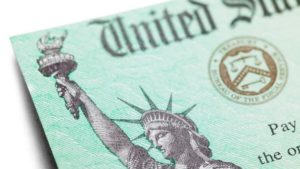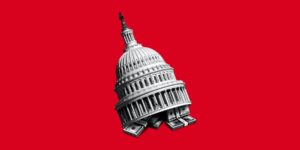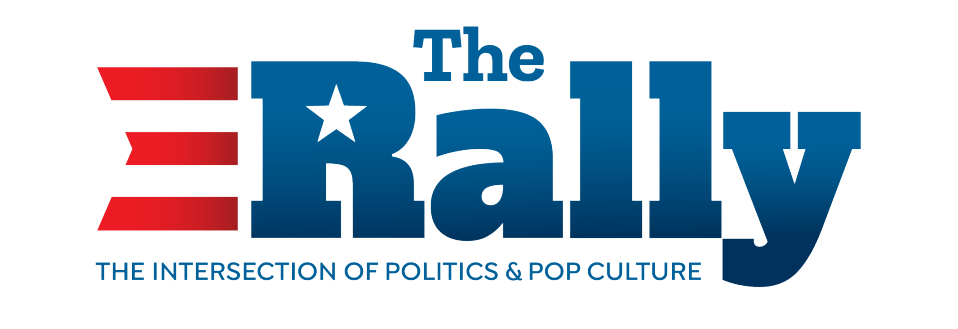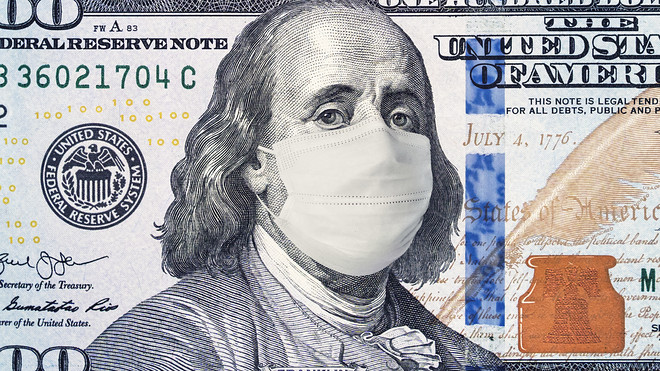The COVID-19 pandemic has changed life as we know it and the role of government. The most obvious difference is with stimulus checks helping 24 million Americans. It is unlike any approach taken in the past and shifting how the federal government will respond in the future. There are two payments, with the second one coming from the Consolidated Appropriations Act of 2021.
It puts money directly into the hands of those Americans who are in desperate need of more assistance from the lockdowns, economic slowdown, and long-term unemployment. The new aid gives single adults a payment of $600. Married couples receive $1,200 ($600 each) and $600 for each child under 17. Adult dependents do not qualify for any help. The stimulus payments cover expenses such as rent, food, the mortgage, and bills. There are benefits and drawbacks with political and social implications. They are changing the role of government moving forward.

Who Qualifies?
There are income limitations for the second stimulus checks. First, anyone who filed their 2019 federal taxes as an individual must have an annual adjusted gross income of below $75,000 to get the full payment. Those who are filing jointly as married couples have a limit of $150,000; this extends to $112,500 for the head of households. All amounts above these levels are reduced by $5 for every $100 in adjusted gross income.
The Political Implications

Politically, the stimulus checks are changing the way the federal government deals with recessions and economic crises. In the past, the role of government was limited to certain areas, such as lowering interest rates and taxes. Direct payments are a way of helping ordinary people to avoid the prospect of losing everything during an economic downturn. It mutes the effects of the recession and increases government spending. Those people who are hurt by the downturn can avoid falling into poverty from the additional support. They can pay their bills and not worry about making the hard choices, like paying for rent or food. It maintains their standard of living and the money goes into the economy.
Businesses benefit from the increased spending and the fallout is less versus doing nothing. Many economists point to the Great Depression and Herbert Hoover opposing any government aid to reduce the economic impacts. During this time, the economy fell into a downward spiral and did not find a bottom until Franklin Roosevelt became President with the New Deal’s passage. The most significant benefit of the stimulus is the federal government limits the economic fallout. The checks are preventing millions of people from becoming homeless and it gives a boost to their spending. The economy receives additional support and there is no economic implosion.

The negative impact is governments will use similar tools in future situations. The problem is that stimulus checks are wasteful spending and do nothing to encourage self-reliance. It increases the amounts of deficit spending, leads to higher taxes, and interest rates down the road. Someone has to pay for all these measures and it is not replacing full wages. Many opponents cite that despite 10.1 million Americans remaining unemployed, there are 150 million that are working. They feel that expanding unemployment benefits are better avenues for adjusting to these situations. They point out that stimulus checks go to the people that are working and do not need them. It is a waste of government resources by not spending it on targeted programs like unemployment.
The Social Effects
The stimulus checks positively affect the poor, younger generations, minorities and less educated. The pandemic disproportionately affects all of these groups. They are experiencing higher amounts of lost income and permanent job losses. The checks preclude their economic situation from becoming worse.
There are also specific areas of the country where unemployment is higher in the tourist, manufacturing, and energy sectors (like Orlando, Florida; Akron, Ohio; and Corpus Christi, Texas). These places are trying to recover and many people remain out of work from the lockdowns and restrictions on travel. The stimulus checks are helping these workers to survive until the economy turns around. The most significant social benefits are the stimulus checks help those that are left behind in economic downturns. They do not lose their homes, livelihoods, or way of life.
The adverse effects are they take away self-reliance and independence. In a study from Northwestern University’s Kellogg School of Management, they found that the stimulus money did not support demand or deal with social disparities. Most people took the checks and spent a percentage of it. The rest went into their bank accounts and did nothing to address the inequalities in society. Those who need it were less likely to look for a job, as they felt the government was paying them to stay home. Productivity declined and the economy did not improve from it. The big worry is that down the road, the federal government will make cutbacks in entitlement programs from these choices.
The bottomline is stimulus checks are having an impact because it has fostered a healthy debate regarding the role of government during economic downturns. Those for stimulus checks and those who oppose them both make valid points; the challenge is creating something that addresses the political and social realities raised.


